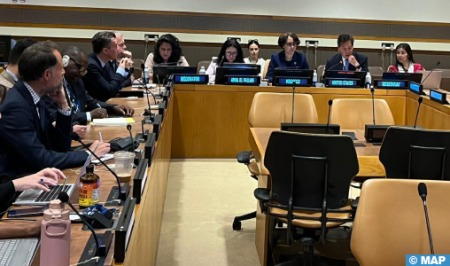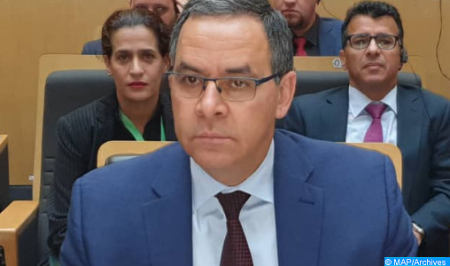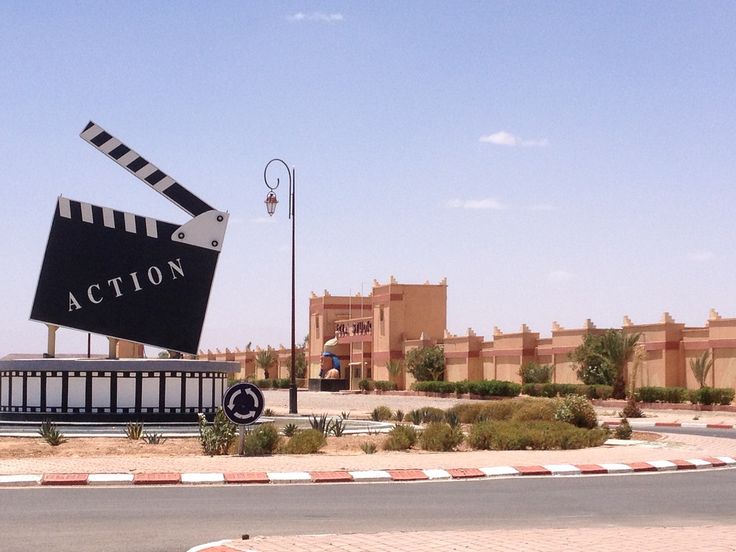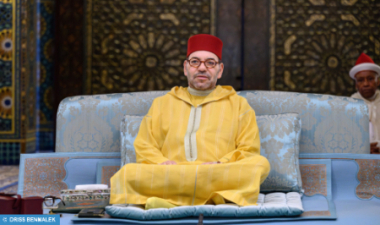The Group of Friends on Artificial Intelligence for Sustainable Development, co-chaired by Morocco and the United States, organized, in New York, a high-level event on the opportunities offered by artificial intelligence (AI) to support sustainable development in Africa.
The event, titled “AI: An exponential opportunity for sustainable development in Africa”, was held Monday at the UN headquarters, in New York.
The meeting was meant to highlight the importance of strategic partnerships and enhanced cooperation in order to improve Africa’s capabilities in AI and to give the continent a say in the global and multi-stakeholder debate on this new technology, its governance, and its benefits.
Professor Amal El Fallah Seghrouchni, Executive President of the International Center for Artificial Intelligence of Morocco known as Ai Movement, within the Mohammed VI Polytechnic University (UM6P), made an exhaustive presentation on the key role of AI in transforming the future of Africa and the potential of this technology to contribute up to 1,500 billion dollars to the African economy, or 6% of the continent’s GDP. “Whether improving healthcare delivery, agricultural productivity, fostering educational inclusion or driving economic growth, AI has already proven itself as a powerful enabler of sustainable development,” she argued.
Among the important questions that she stressed in her presentation is that of the articulation between technological and regulatory requirements for ethical and responsible innovation, thus pleading for trustworthy AI.
She noted that in order to exploit the potential of AI, Africa must accelerate the development of AI and devise its concrete roadmap including investments in infrastructure, improvement of data quality, education, capacity building, research and innovation, and governance.
The speaker recalled that Morocco organized last June in Rabat the 1st High Level Forum on Artificial Intelligence in Africa bringing together more than 20 countries. This event was marked by the adoption of the Rabat African Consensus on Artificial Intelligence.
She also briefed the meeting on the AI Movement Center which is a research and development center created in 2020 by UM6P and which positions itself as a regional hub and leader in the field of AI and endeavors to develop a trustworthy AI in Africa.
AI Movement also aims to promote co-development through the Sustainable Development Goals (SDGs) by 2030, she indicated, citing in this regard a study carried out and published by “Nature” in 2020 which highlights that 79% of the SDGs can be achieved or improved thanks to AI.
The Ai Movement was designated a UNESCO category II center in November 2023, a center of excellence in the field of AI and data sciences in Africa, recalled the world expert in AI, adding that the meeting at the United Nations aims to give more visibility to the Rabat African Consensus on AI and to contribute to better representation of the continent in global discussions around the governance of the new technology.
The Executive President of the AI Movement Center further highlighted the importance of developing trustworthy AI technologies that take into account ethical considerations, fairness, transparency, and accountability.
“By focusing on the responsible development of AI, we can maximize the benefits of these technologies while minimizing the potential risks,” she insisted.
Rachel Adams, CEO of the Global Center on AI Governance, based in South Africa and which hosts the African Observatory on Responsible AI, surveyed in her address the missions of the African Observatory, indicating that this structure has acquired proven expertise in this area through the collection of data and the proposal of visions and strategies to improve AI governance.
Speaking of the continental strategy of the African Union (AU) on AI, she stressed that the objective of this approach is to harness AI to accelerate socio-economic transformation, in accordance with the AU Agenda 2063 and the UN Sustainable Development Agenda.
In their part, Majda Moutchou and Chris Lu, respectively deputy representatives of the Permanent Missions of Morocco and the United States to the UN, pointed out that the Group of Friends on AI makes it possible to initiate inclusive discussions to make advancing AI in the service of sustainable development and reducing the digital divide.
In this regard, they hailed the momentum that AI is already creating in Africa and the prospects for its development on the continent with the support of all international partners.
The meeting of the group of friends on AI saw a strong participation of member states from all regional groups, who welcomed the adoption of the Rabat African Consensus on AI, while commending Morocco for its vision, its commitment and leadership in this process.
The Rabat Consensus on AI, which was unanimously adopted, had launched a call for action to put in place the milestones of an African strategy on AI governance. It defines three founding principles meant to mobilize institutions across the continent, namely, to work towards the development of a common framework for global and inclusive governance of AI, harness the AI in the public sector and in the service of the African common good, and guarantee the development and ethical use of AI, based on human rights in the service of all.



